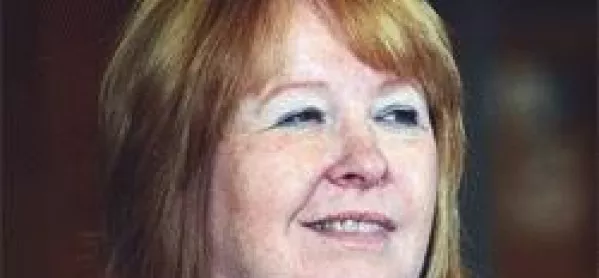There is no need to reinvent the wheel

Scotland’s two headteacher associations each have a new president. Elizabeth Buie finds that the leaders of the primary and secondary sectors are both strong-minded women, divided in their views on testing, but united in their dedication to pupils
Irene Matier fell into teaching. She never wanted to be a teacher and just thought she had better do something when she left school in Glasgow - so she applied to, and was accepted by, Hamilton College of Education.
“I discovered it suited me. The first time I went on teaching practice, I could do it. I was very lucky to find a job I loved doing,” she says, after nearly 30 years in the profession which has taken her to the presidency of the Association of Headteachers and Deputes in Scotland.
It is certainly one which has changed in the past three decades. When she started teaching, it was in a very traditional school where she had to teach her pupils Latin roots. After a four-year career break when she had her son (now also a primary teacher) and daughter, she came back to teaching just as the 5-14 guidelines were being introduced. She sits on the Curriculum for Excellence management board and sees more than a few parallels between the implementation of the two initiatives.
Mrs Matier’s main concern is that too many teachers feel they have to reinvent the wheel for Curriculum for Excellence when it should really be about good practice. “There are two sides to A Curriculum for Excellence,” she argues. “Teachers desperately need to get back their autonomy in the classroom. But that comes with accountability, so it’s a scary thing for them. Providing we can give them the scaffolding they need, it should not be so difficult.”
The “5-14 mindset” means that teachers are waiting for the bits of paper to tell them what they should be doing - planning sheets which they probably won’t need. In the period leading up to full implementation, there is a grave danger, she feels, of a vast duplication of effort.
That is why, as principal of Bannerman learning community, Mrs Matier is trying to ensure that the six primaries, Bannerman High and the pre-five centre all work very closely together (she is unusual as a primary head leading a learning community). If anything, she is more positive than most about the new curriculum. She never liked the 5-14 testing regime, which she felt “skewed” the curriculum and led teachers to teach to the test.
“Something that could have been used to confirm teachers’ professional judgment was used to do something for which it was never intended,” she says. “It was applied to target-setting which changed the whole atmosphere and view of education. People felt they were being watched all the time and had to improve and improve.”
Mrs Matier blames councillors. They wanted to be able to say there have been improvements year-on-year, so needed hard evidence, she says. Glasgow councillors would love to see pupils in their constituencies achieve the kind of results they see in East Renfrewshire. But, she comments, “the children are not the same - and why should we want them all to be the same?”
Glasgow City Council’s plans to introduce a diagnostic testing regime do not impress her.
Unlike her secondary counterpart Carole Ford (see opposite page), a strong advocate of literacy and numeracy testing in P7, Mrs Matier is completely against setting tests at that stage and believes that, if there has to be external testing in primary, she would rather it happened at any stage other than P7. She feels P7 literacy and numeracy tests would exacerbate the primary-secondary divide.
Children from P6-S2 should be doing roughly the same thing, rather than following a “stop-start regime”, she argues.
Mrs Matier recognises that, with their subject focus and timetables, it is more difficult for secondary teachers to get to grips with A Curriculum for Excellence.
“If they saw themselves as teachers first and subject specialists second, perhaps things would move forward,” she suggests.
If that is a view likely to rattle the cages of colleagues in the secondary sector, her opinions on class sizes will be even more unpopular with the Educational Institute of Scotland, not to mention Fiona Hyslop, the Education Secretary.
“I would be happy with a class of 30 with a very good teacher, as long as there were no huge difficulties within it, such as children with social, emotional and behavioural problems,” she says. “I had a class of 15 pupils with a teacher once, and the result was negative, because the children had no good role model. A small class can be just as difficult as a large one - it depends on who’s in the class. You need some flexibility on class sizes because, frankly, there is no educational argument for having a limit of 18.”
Headteachers have a special job, but they also need to take control when it comes to workload, Mrs Matier believes: “Heads should not be working 50 to 60 hours a week. They need to ask themselves: `What do I need to do? What matters to the children? What can I stop doing? And then say to head office that you can’t do it.”
IRENE MATIER Age: 54 Born: Glasgow Attended: Queen’s Park Senior Secondary, Glasgow Trained: Hamilton College of Education; and Strathclyde University. Current position: headteacher of Caledonia Primary, Glasgow; also principal of Bannerman learning community Interests: reading and walking her dogs.
Keep reading for just £1 per month
You've reached your limit of free articles this month. Subscribe for £1 per month for three months and get:
- Unlimited access to all Tes magazine content
- Exclusive subscriber-only stories
- Award-winning email newsletters